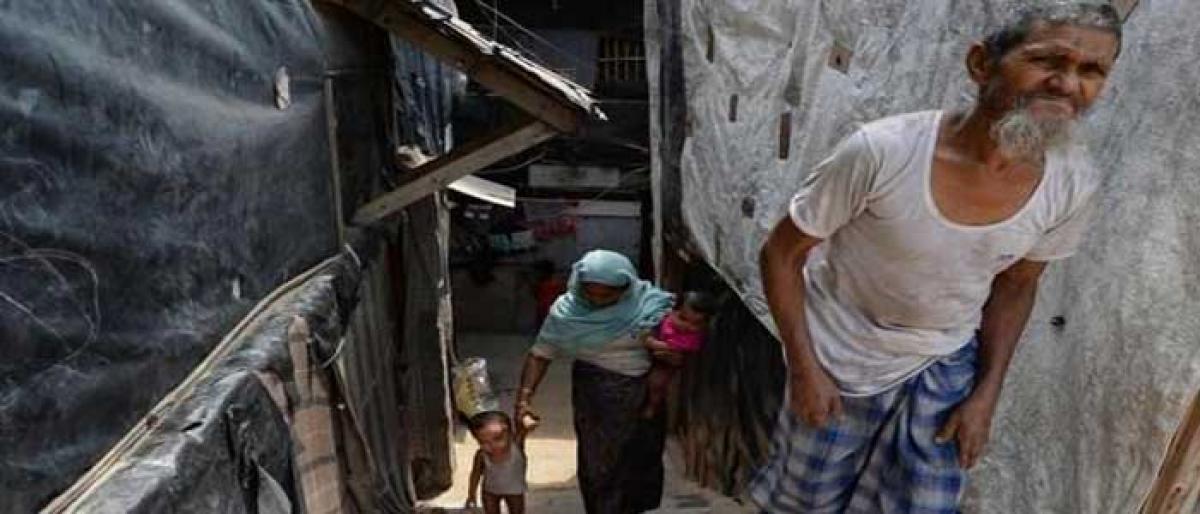Rohingyas a serious threat

Citing serious ramifications on national security, the Centre told the Supreme Court on Monday that it should not interfere and let it take a decision under a “fair and just procedure” on the issue of deportation of Rohingyas, many of whom have illegally crossed borders seeking refuge against widespread violence and discrimination in their home country, Myanmar.
New Delhi: Citing serious ramifications on national security, the Centre told the Supreme Court on Monday that it should not interfere and let it take a decision under a “fair and just procedure” on the issue of deportation of Rohingyas, many of whom have illegally crossed borders seeking refuge against widespread violence and discrimination in their home country, Myanmar.
Citing India’s large population and its complex social, cultural and economic infrastructure, the Centre said that it would take a decision keeping in mind the larger interest of the nation along with other factors such as its natural resources, requirements of the country’s population and the national security threat it may pose.
It submitted that as a sovereign nation, its first and foremost constitutional duty towards its citizens would be to ensure that the “demographic and social structure of the country is not changed to their detriment”, and that resources of the nation are used to fulfil their fundamental rights and not diverted.
“India which has open /porous borders with Nepal, Bhutan, Bangladesh, Pakistan, Myanmar etc makes it vulnerable to an influx of illegal immigration and resultant problems,” the affidavit stated.
A bench headed by Chief Justice Dipak Misra had agreed on September 4 to hear a plea against the arbitrary deportation of members from the Rohingya community who sought refuge in India after fleeing Myanmar because of atrocities against the community.
The petition was filed by two Rohingya Muslims—Mohammad Salimullah and Mohammad Shaqir—who are currently living in India. In a 16-page affidavit, the Centre held that the current influx of illegal Rohingya immigrants into India was a “potential threat to internal and national security” and in such a situation the Central government would take a policy decision based on several parameters, diplomatic considerations and potential dangers to the nation.
Explaining its stand on the principle of Non-Refoulement (which prohibited deportation of refugees) invoked by the petitioners, the Centre submitted that it was a party to the International Covenant of Civil and Political Rights to which the principle did not extend.
Spelling out the problems illegal immigrants were posing, the Centre further said that some Rohingyas were indulging in illegal activities such as mobilization of funds through hawala channels, procuring fake identify documents—PAN (permanent account number) and voter card—and indulging in human trafficking.
It was submitted by the petitioners that the proposed deportation was contrary to constitutional protection under Article 14 (equality under law), Article 21 (right to life) and Article 51(c) of the Constitution of India.
Deportation would also be in contradiction with the principle of non-refoulement that prohibits deportation of refugees to a country where they face threat to their life and has been recognized under customary international law.
An estimated 40,000 Rohingya Muslims, including the petitioners, live in India and are registered with the UN refugee agency in India.
The matter will be heard next on 3 October.














